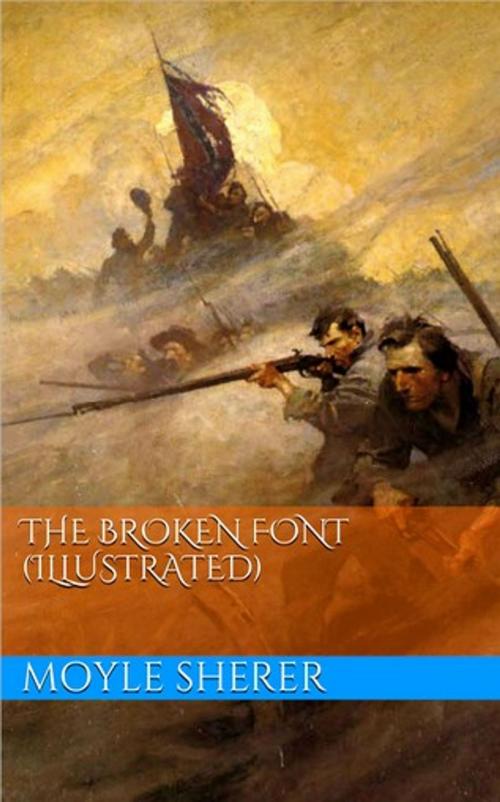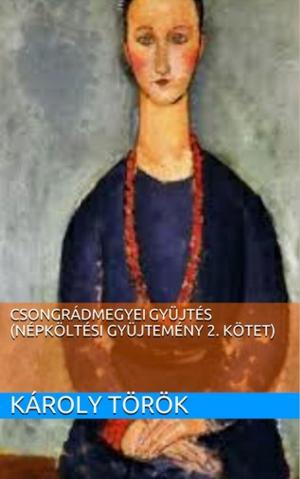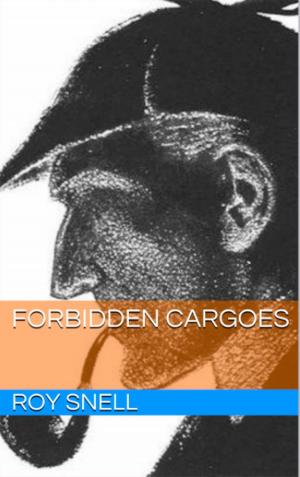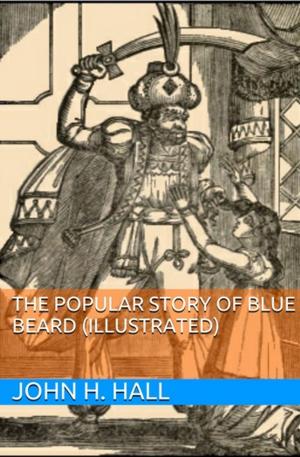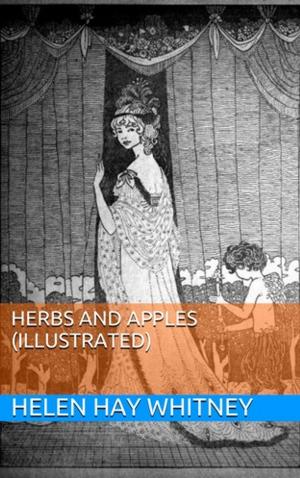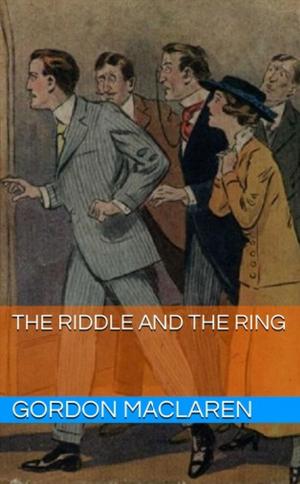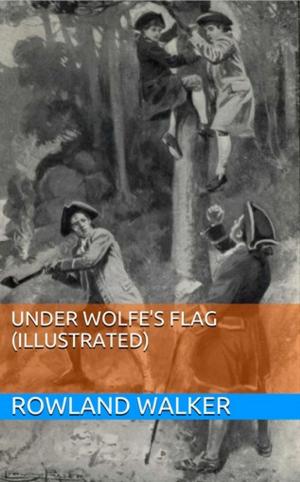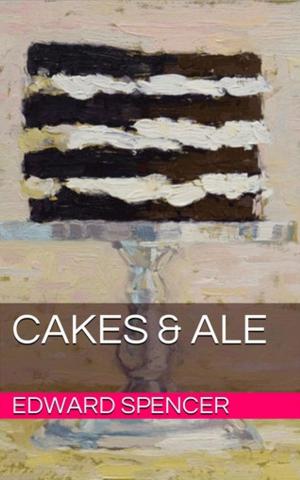| Author: | Moyle Sherer | ISBN: | 1230000154236 |
| Publisher: | Lost Leaf Publications | Publication: | July 23, 2013 |
| Imprint: | Language: | English |
| Author: | Moyle Sherer |
| ISBN: | 1230000154236 |
| Publisher: | Lost Leaf Publications |
| Publication: | July 23, 2013 |
| Imprint: | |
| Language: | English |
The Broken Font: A Story of the Civil War
Volume 2
CHAPTER I.
And now, good morrow to our waking soules,
Which watch not one another out of feare.
Donne.
The noble spirit of Katharine Heywood was severely exercised by those disclosures of Jane Lambert which have been related in a former chapter.
She regretted, too late, that she had ever asked that true-hearted girl to perform an office so difficult in itself, and which had proved, in its consequences, so hazardous to her reputation and her peace. The chance of such a misfortune as that which had befallen Jane never remotely presented itself to her mind at the moment when she made the request, yet she
could not but feel compunction as she reflected on the trouble to which the generous constancy of a delicate mind had subjected her affectionate friend. One slight reparation was in her power. It became her plain duty to undeceive the mind of Juxon on the subject; and the thought that she should be thus instrumental in bringing together two fine characters, formed for each other, made all selfish considerations about her own sorrow, and every pang which her maidenly pride must suffer, vanish before that proper resolution.
No opportunity of speaking in private with Juxon occurred on the evening of Jane’s disclosure to Katharine, nor did any offer itself until the arrival of her young cousin Arthur from Oxford. It was a mournful trial to Katharine to observe the high and joyous spirits of the ardent youth, as he embraced and thanked Sir Oliver for acceding to his request. The silent house became suddenly full of cheerful echoes as the brave boy passed to and fro on its oaken staircase and along the pleasant gallery, singing snatches of loyal songs, or making his spurs jingle as he ran. All his preparations for the solemn work of war were made with a light heart, and with little or no consideration that fellow-countrymen were to be his enemies. Such little sympathy as the boy once felt for the tortured Prynne existed no longer for any one of that party, which he had learned to look upon as traitors.
One would have thought that he was volunteering in a foreign expedition, by his gay-hearted alacrity in getting ready.
“Cousin Kate,” said he, turning towards her as they sat at breakfast in the hall, “you must make us a couple of King’s rosettes,—and I hope you have both of you,” he added, looking at Jane Lambert, “nearly finished embroidering the small standard for our troop:—you have laughed at me, and called me boy, Jane; but when I bring you back your own embroidery, stained with the blood of traitors, you shall reward me as a man.”
“I am not so very blood-thirsty, Arthur,” said Jane Lambert, “as to wish it shed to do honour to my embroidery; and if I see you come safe back with your sword bright and a peace branch in your hand, I will tell a fib for you, and call you a man before your beard comes. Now don’t frown—it does not become your smooth face:—when all is over, you shall play the part of a lady in the first court masque, and shall wear my rose-coloured gown.”
“Why, Jane,” said Sir Oliver, “what is come to you, girl? It was but five minutes ago that I saw you with your kerchief at your eyes, looking as sad as though you were sitting at a funeral; and now thou mockest poor Arthur, as if he were a vain boaster, instead of a gallant boy, as thou well knowest.—Never mind her, Arthur: she is a true woman, and teazes those most whom she loves the best. She will cry peccavi to thee a few weeks hence, and suffer thee to give her a full pardon in honest kisses.”
“Marry, Sir Oliver,” said Jane, smiling, “you will spoil the boy, an you talk thus to him.”
“She shall not wait so long for my pardon,” said the good-tempered Arthur, with quickness; and rising from his seat, he went to Jane, and, with the permitted familiarity of boyhood and cousinship, he gave her a kiss. “There,” he added: “a bird in the hand is worth two in the bush. ‘To-morrow’ is a word I never liked, and it is a season which I may never find. Now, remember, if I should have the ill luck to be cut down by the sword of a traitor, I die in peace with you, dear coz, and forgive you for your merriment beforehand.”
“She will not be merrier, Arthur, than she is now,” said Katharine; “and to say truth, the very thought is enough to make us sad, if we were not melancholy already:—but I must not hear, my dear father, of your going to the field. It will be at the cost of your life, and that, too, without your having the satisfaction to be of use.”
The Broken Font: A Story of the Civil War
Volume 2
CHAPTER I.
And now, good morrow to our waking soules,
Which watch not one another out of feare.
Donne.
The noble spirit of Katharine Heywood was severely exercised by those disclosures of Jane Lambert which have been related in a former chapter.
She regretted, too late, that she had ever asked that true-hearted girl to perform an office so difficult in itself, and which had proved, in its consequences, so hazardous to her reputation and her peace. The chance of such a misfortune as that which had befallen Jane never remotely presented itself to her mind at the moment when she made the request, yet she
could not but feel compunction as she reflected on the trouble to which the generous constancy of a delicate mind had subjected her affectionate friend. One slight reparation was in her power. It became her plain duty to undeceive the mind of Juxon on the subject; and the thought that she should be thus instrumental in bringing together two fine characters, formed for each other, made all selfish considerations about her own sorrow, and every pang which her maidenly pride must suffer, vanish before that proper resolution.
No opportunity of speaking in private with Juxon occurred on the evening of Jane’s disclosure to Katharine, nor did any offer itself until the arrival of her young cousin Arthur from Oxford. It was a mournful trial to Katharine to observe the high and joyous spirits of the ardent youth, as he embraced and thanked Sir Oliver for acceding to his request. The silent house became suddenly full of cheerful echoes as the brave boy passed to and fro on its oaken staircase and along the pleasant gallery, singing snatches of loyal songs, or making his spurs jingle as he ran. All his preparations for the solemn work of war were made with a light heart, and with little or no consideration that fellow-countrymen were to be his enemies. Such little sympathy as the boy once felt for the tortured Prynne existed no longer for any one of that party, which he had learned to look upon as traitors.
One would have thought that he was volunteering in a foreign expedition, by his gay-hearted alacrity in getting ready.
“Cousin Kate,” said he, turning towards her as they sat at breakfast in the hall, “you must make us a couple of King’s rosettes,—and I hope you have both of you,” he added, looking at Jane Lambert, “nearly finished embroidering the small standard for our troop:—you have laughed at me, and called me boy, Jane; but when I bring you back your own embroidery, stained with the blood of traitors, you shall reward me as a man.”
“I am not so very blood-thirsty, Arthur,” said Jane Lambert, “as to wish it shed to do honour to my embroidery; and if I see you come safe back with your sword bright and a peace branch in your hand, I will tell a fib for you, and call you a man before your beard comes. Now don’t frown—it does not become your smooth face:—when all is over, you shall play the part of a lady in the first court masque, and shall wear my rose-coloured gown.”
“Why, Jane,” said Sir Oliver, “what is come to you, girl? It was but five minutes ago that I saw you with your kerchief at your eyes, looking as sad as though you were sitting at a funeral; and now thou mockest poor Arthur, as if he were a vain boaster, instead of a gallant boy, as thou well knowest.—Never mind her, Arthur: she is a true woman, and teazes those most whom she loves the best. She will cry peccavi to thee a few weeks hence, and suffer thee to give her a full pardon in honest kisses.”
“Marry, Sir Oliver,” said Jane, smiling, “you will spoil the boy, an you talk thus to him.”
“She shall not wait so long for my pardon,” said the good-tempered Arthur, with quickness; and rising from his seat, he went to Jane, and, with the permitted familiarity of boyhood and cousinship, he gave her a kiss. “There,” he added: “a bird in the hand is worth two in the bush. ‘To-morrow’ is a word I never liked, and it is a season which I may never find. Now, remember, if I should have the ill luck to be cut down by the sword of a traitor, I die in peace with you, dear coz, and forgive you for your merriment beforehand.”
“She will not be merrier, Arthur, than she is now,” said Katharine; “and to say truth, the very thought is enough to make us sad, if we were not melancholy already:—but I must not hear, my dear father, of your going to the field. It will be at the cost of your life, and that, too, without your having the satisfaction to be of use.”
